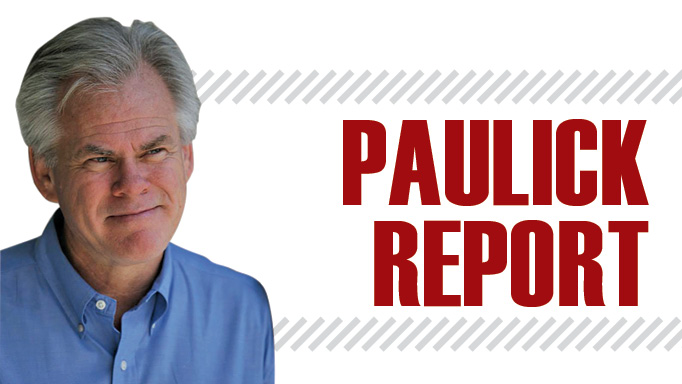The last 25 years has seen enormous change in how purses and operating expenses at North American racetracks are funded. The majority of tracks and horsemen now rely on some form of revenue from slot machines or casinos, and there is a growing consensus this marriage will not last forever.
At first blush, exchange wagering in New Jersey – the first American state to offer this type of betting – has not lived up to expectations. The amount wagered (or “matched” as Betfair, the UK-based company that brought exchange wagering to these shores, likes to say) is just $12 million over the first 12 weeks since adopted in mid-May.
That is far from being a game changer for horse racing.
But let’s be clear about a few of the details.
First of all, exchange wagering is only open to residents of New Jersey, a state with about nine million people and a flagging interest in horse racing. So far, those residents have not been able to wager on the best racing in the United States – New York or California or any of the tracks owned by the Stronach Group or Churchill Downs. The only wagers allowed are win, place and show, with players able to take a “for” or “against” position on any horse in the race finishing in the top three spots.
Horsemen and some racetracks are concerned there is considerably less revenue per dollar wagered on the exchange that comes back to support purses and operations. If existing horseplayers move their business from traditional pari-mutuel bets to exchange wagering, purses and traditional racetrack revenues will fall.
But Betfair says the typical exchange player is different from the average horseplayer who focuses increasingly on multi-race or multi horse wagers like Pick 4s and superfectas. Many existing bettors are looking for high-risk/high-reward bet types, while exchange players may be more focused on value opportunities that provide marginal advantages.
Kip Levin, the CEO of Betfair US and TVG, said the New Jersey launch has shown the average age of new exchange players is 20 years younger than the average customer on the company’s New Jersey advance deposit wagering (ADW) platform, 4NJBets.
Further, Levin has said, 80 per cent of the money wagered on the exchange in New Jersey has been from customers that did not previously play traditional pari-mutuel wagers on 4NJBets – the only legal ADW platform in New Jersey. Finally, Levin provided statistics showing that a $100 deposit for a traditional ADW account leads to an average of $310 in wagers. That same $100 produces over $1,000 in exchange wagering.
That’s all good news, for if exchange wagering does nothing but cannibalize existing pools, racing is doomed. With a preponderance of money now wagered away from the track where the live race is held, the sport must develop a 21st Century strategy for recruiting new players who are not attracted by traditional means – the horse itself or the on-track experience. In my opinion, exchange wagering should be part of that strategy.
Integrity issues with exchange wagering continue to be brought up by those who are opposed to it, and the UK has had its share of scandals involving owners, trainers and jockeys who have taken advantage of the opportunity to bet against their own horse. I would submit that those types of scandals occurred just as frequently with UK bookmakers and the tote, but exchange wagering platforms actually provide greater security in tracking suspicious betting patterns and investigators for Betfair have worked closely with racing authorities to expose the perpetrators.
The last 25 years has seen enormous change in how purses and operating expenses at North American racetracks are funded. The majority of tracks and horsemen now rely on some form of revenue from slot machines or casinos, and there is a growing consensus this marriage will not last forever. In fact, many American racetracks are now owned by casino companies who look at horse racing as a necessary evil mandated by laws they would like to change. That is a significant threat to the future of racing.
The racing/casino marriage – at least at some tracks – has marginalized the importance of betting on horses to the point that track managers (many of whose paychecks are signed by casino companies) simply don’t care. When politicians pull the rug out from beneath these casino/tracks and horsemen suddenly are living in a world without slots or casino revenue, it may be too late to stimulate interest in our game.
Exchange wagering may be the industry’s best bet.


